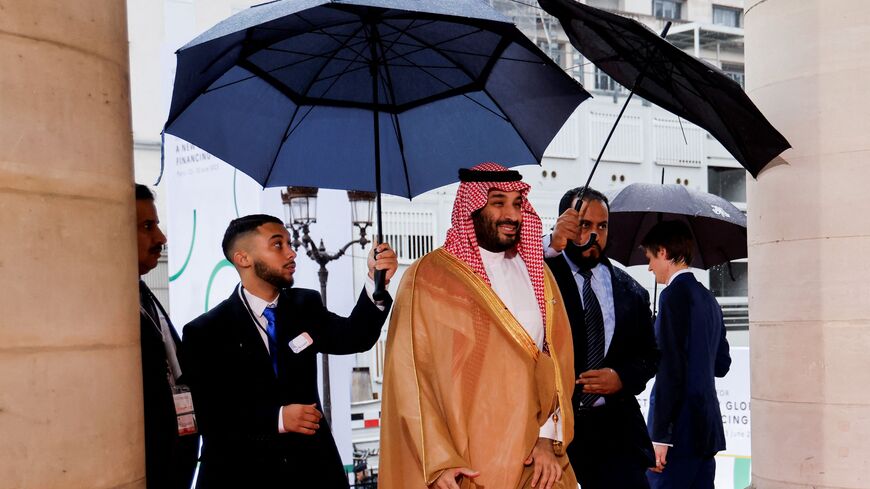WASHINGTON — US President Joe Biden’s National Security Adviser Jake Sullivan, his top deputy on Middle East policy Brett McGurk, and senior adviser for energy and infrastructure Amos Hochstein met Saudi Crown Prince Mohammed bin Salman in Riyadh on Thursday to advance efforts aimed at establishing formal ties between the kingdom and Israel.
The visit was first reported by the New York Times and later confirmed by the White House and the Saudi government. Riyadh said the meeting was also attended by Energy Minister Prince Salman bin Abd al-Aziz, Defense Minister Khalid bin Salman, the governor of the Public Investment Fund, Yasir al-Rumayyan, and Saudi National Security Adviser Musaid al-Aiban. Saudi Ambassador to the United States Princess Reema bint Bandar and US Ambassador to Saudi Arabia Michael Ratney also attended.
A National Security Council spokesperson said in a statement that normalization with Israel was discussed — alongside other issues. "We continue to support normalization with Israel, including with Saudi Arabia, and obviously continue to talk to our regional partners about how more progress can be made. It’s one effort we are pursuing toward advancing US foreign policy goals for a more peaceful, secure, prosperous and stable Middle East region," the spokesperson said.
In exchange for what would be a historic decision to normalize relations with Israel, the Saudis are reportedly asking Washington to provide a NATO-style mutual defense agreement with the the kingdom, along with help developing a civilian nuclear program, in addition to advanced weapons systems such as more THAAD (Terminal High Altitude Area Defense) ballistic missile defense batteries.
The demands aim to fulfill the crown prince’s goals for energy diversification while bolstering the kingdom’s defenses against regional rival Iran. Biden has not yet decided whether to approve the requests, the president told the New York Times — but it’s not certain he has the power to grant them.
Any mutual defense pact akin to what US maintains with its closest Western allies would require approval by Congress, and despite bipartisan support for an Israeli-Saudi normalization deal, intense skepticism remains among powerful senators on both sides of the aisle over any entangling alliances with the Gulf kingdom.
The United States is seeking an end to the Yemen war and, reportedly, an unprecedented Saudi bailout of Palestinian institutions in the West Bank, as well as firm limits on the kingdom’s ties with Beijing.
The willingness of Israel’s government to go along with such a trilateral understanding remains unclear.
Israeli Prime Minister Benjamin Netanyahu has signaled preference for normalization with Arab states over his political allies’ interest in annexing the West Bank in the past, but his new right-wing ruling coalition has made major strides towards de jure annexation, which would violate international law and further alienate Middle Eastern leaders.
Saudi officials publicly say they insist on steps towards a two-state solution, but privately have signaled the matter is secondary to their up-front asks, according to current and former Western officials close to the discussions.
The Biden administration has prioritized promoting integration between states in the Middle East as it seeks to avoid costly military interventions, as China seeks to surpass the United States' economic and strategic influence on the global stage.
Yet the current administration has exerted no major diplomatic effort towards restarting talks between Israel and the Palestinians on a future two-state solution, and Biden’s approach to keeping Netanyahu close has thus far borne little fruit.
Netanyahu’s coalition has continued to announce new settlement authorizations despite urging from the White House not to do so. On Tuesday, the Knesset approved a measure that would weaken Israel’s Supreme Court despite massive domestic protests and opposition from Washington.








